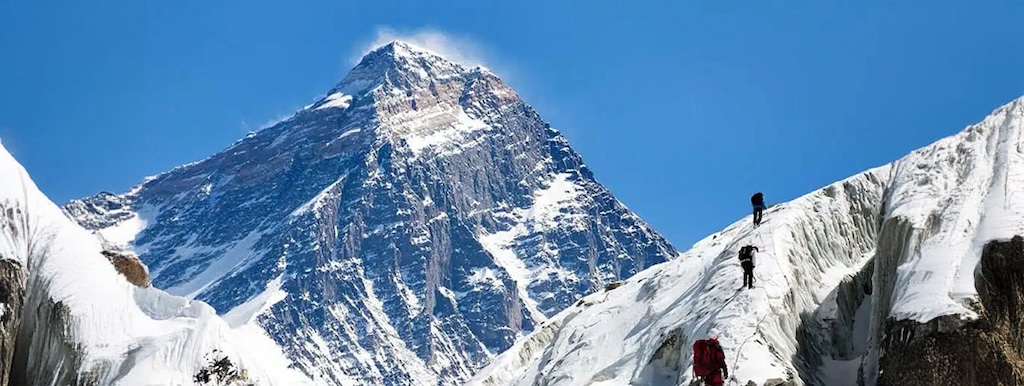Having summited numerous peaks above 8,000 meters, (Super) Phula Sherpa is one of the most significant resources available to trekkers planning high-altitude Himalayan treks, and he eagerly participates in the Everest Clean Up Campaign to give back to the land that he loves. Born in the area of Jantarkhani in Nepal’s eastern region, he began his profession as a climbing guide in the Himalaya.
This past spring the Nepalese Army took on the task of going to Everest to bring out garbage that had been left for years by climbing expeditions, and Phula Sherpa was asked to be one of the climbing guides for these expeditions. He was kind enough to share with us his takeaways from the expedition and insights for ways to improve pollution going forward.
NE: Phula, you were on the recent Everest “clean-up” Expedition. What prompted you to be part of the expedition?
Phula Sherpa: Yes, I served as a climbing guide for the Nepalese Army, who were assigned the clean-up task. The Nepalese Army took up the responsibility to clean up the mighty Everest earlier this spring.
This is not the first clean-up expedition that I have been involved in. I feel honored to share the fact that our company’s founder, the late Mr. Wongchhu Sherpa, was one of the pioneers in preserving Mt. Everest. He was among those leaders who felt the need for cleaning the mountains and initiated the first climbing expedition whose goal was not to reach the summit but actually to collect and bring down as much garbage as possible, which has been accumulating on the mountain for years.
His vision inspired me to volunteer for every opportunity to help clean and preserve the region that I work in.

NE: What was the goal of the expedition and were you able to achieve it?
Phula Sherpa: On the expedition we collected around 10,000 kgs of garbage from the mountain. We had a preliminary target of 5,000 kgs of garbage from Everest Base Camp, 2,000 kgs from South Col, and 3,000 kgs from Camp 1 & 2 jointly.
Several institutions were involved in this project, such as the Nepal Tourism Board, the Nepalese Army, Sagarmatha Pollution Control Committee, Nepal Mountaineering Association, and the Everest Summiteers’ Association.
The estimated cost of the project was $23-Million NPR. There were many other private institutions who assisted this project directly or indirectly. Based on the success of the Everest clean-up, the Government of Nepal is now planning to allocate funds for cleaning up other mountain peaks as well.

NE: What were your personal feelings as you were on this mountain expedition where summiting the peak is not the goal.
Phula: I personally think we should carry on this kind of project on a regular basis.
For us, the Sherpas, the mountains feed us. We rely on the mountains for our living and it is quite embarrassing to see it being polluted day by day. Not only pollution but the global changes in climate and weather has also been deteriorating the quality of our mighty mountains. Not only should this be an annual event, I think we should raise our target goal every year.
Though we brought down 10,000 kgs of waste on this expedition, there is still much more on the mountain that needs to be brought out—not to forget all of the bodies of dead climbers that are still there.
A system is being developed and we the Nepalese should implement and follow it. Considering the fact this mountain land is ours, we should take the initiative to save it at any cost.
Therefore, as a professional trekking and climbing guide involved in this industry, I stood up to clean up. I strongly believe everyone involved in this sector should push this project to keep our mountains clean and unharmed.
NE: What are some things that you as a trekking guide do on a trek to minimize your group’s impact?
Phula Sherpa: We strive to only use reusable items during our treks. We use as little fuel as possible while on treks and expeditions and no wood fires at all.
We request that all our guests do not discard any garbage along the trail but instead bring all of it to camp and then discard the waste into designated bins.
All inorganic waste is always disposed of in the specified collection points. More or less we contribute toward the sustainable cleanliness of the mountains and trails we operate.

NE: With the large influx of trekkers and climbers heading to the Everest region every year, are there any protocols being set-up that will mitigate future garbage issues? Or will these clean-up expeditions be continuously necessary?
Phula: Going forward we have a better system in place where several garbage collection locations have been established in the Khumbu. So trekking groups, climbing expeditions, local lodges and villagers can bring their waste to these locations.
Furthermore, the Sagarmatha Pollution Control Committee (SPCC) has implemented the following in each facility:
- Source Segregation (manually segregating waste into separate collection bins)
- Regular Collection by the SPCC
- Establishment of Environmental Stations (waste collection stations designed to replace landfills and waste enclosures)
- Establishment of Material Recovery Facilities (MRF) or pre-processing stations where plastics can be shredded, aluminum cans compacted, etc.
From these collection sites, all of the segregated garbage is then brought to facilities in Kathmandu for proper disposal.

